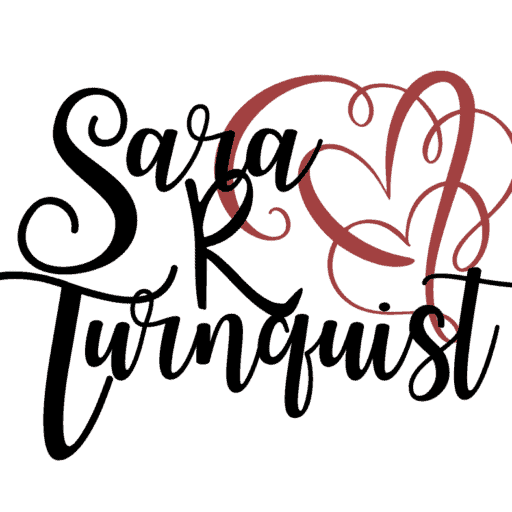Hey, all! So, my writing tends to go in ebbs and flows. What I mean by that is…either I’m doing a ton of writing, or all editing. Two months ago, it was a lot of writing. These last couple of months, it’s all editing. I have a manuscript that is just newly under contract. So, I have to do a round of pre-edits before it’s turned over to my publisher’s team of editors. And I have one I’m self-publishing that I had to self-edit before turning over to my freelance editor. Edit, edit, edit… So today’s blog is about editing. Imagine that.
I’ve talked before about self-editing and the importance of it. Today, I want to get into the trenches with you and discuss some of the nuances of pre-editing. (Self-editing and pre-editing are essentially the same thing, I believe. For me, “self-editing” is what I do every time I look at the novel and that last round before I submit the manuscript to my publisher, “pre-editing” is when I take a fine-tooth comb and the publisher’s list of preferences and go back through the novel again.)
 Adverbs
Adverbs
What’s the deal with adverbs anyway? What’s so harmful about a few -ly words? You’ve probably heard all the typical answers: “It indicates ‘lazy writing'”, “there are better ways to say that”, “it’s telling, do more showing”… Mark Twain encouraged writers to avoid them as an exercise in being “simple and straightforward”. Stephen King has quite a bit to say about the use of adverbs. Bottom line – in most cases, they are not needed. Here is a quote from Stephen King’s On Writing:
Consider the sentence He closed the door firmly. It’s by no means a terrible sentence (at least it’s got an active verb going for it), but ask yourself if firmly really has to be there. You can argue that it expresses a degree of difference between He closed the door and He slammed the door, and you’ll get no argument from me … but what about context? What about all the enlightening (not to say emotionally moving) prose which came beforeHe closed the door firmly? Shouldn’t this tell us how he closed the door? And if the foregoing prose does tell us, isn’t firmly an extra word? Isn’t it redundant?
So, check for adverbs in your manuscript. You can do a search for “ly”. Sure you’ll turn up words like “only” that are not adverbs, but it will help you pull out the adverbs more easily. How many should you have?The truth is, there is no “right” answer. That is between you as an artist and your agent/publisher. My publisher’s rule of thumb is one, maybe two per page.
Extraneous Words
 These are words that are just that–extra. You don’t need them. But you wrote them. As well you should have. During the first draft phase, you’re writing like a maniac and just putting it on the paper/word processor document. You aren’t thinking about each word and it’s necessity. But now is the time to do that. I’m talking about the “that”s. About the “to her”, “from him”, the dreaded “up” and “down”. Here’s a couple of examples from the manuscript I am working on, my A Convenient Risk,
These are words that are just that–extra. You don’t need them. But you wrote them. As well you should have. During the first draft phase, you’re writing like a maniac and just putting it on the paper/word processor document. You aren’t thinking about each word and it’s necessity. But now is the time to do that. I’m talking about the “that”s. About the “to her”, “from him”, the dreaded “up” and “down”. Here’s a couple of examples from the manuscript I am working on, my A Convenient Risk,
The silhouette of the figure became visible to her.
The “to her” here is not necessary since we are in her point of view.
“I’ll help.” He knelt down next to the glass and picked up the shards.
The word “down” is not needed here. We understand that he is kneeling on the ground level.
Overused Words
 Wait…didn’t we just talk about this? By “overused words”, I’m talking about words that are specific to you. As you read through your manuscript from top to bottom, you may come across a word, or maybe two or more, that you use more than you’d like. Words that may or may not be necessary (i.e. not all are extraneous). I apparently love the words “over” and “toward”. Most of the uses of the word “over” can just be taken out. But I have to replace/rewrite several of the “toward” occurrences. It’s amazing how often I use these words! And, knowing this about myself, I now do a global search during the pre-edit phase for these words to find and hopefully eliminate as many instances as I can.
Wait…didn’t we just talk about this? By “overused words”, I’m talking about words that are specific to you. As you read through your manuscript from top to bottom, you may come across a word, or maybe two or more, that you use more than you’d like. Words that may or may not be necessary (i.e. not all are extraneous). I apparently love the words “over” and “toward”. Most of the uses of the word “over” can just be taken out. But I have to replace/rewrite several of the “toward” occurrences. It’s amazing how often I use these words! And, knowing this about myself, I now do a global search during the pre-edit phase for these words to find and hopefully eliminate as many instances as I can.
Holding her chin high, she maneuvered Samuel over to her right hip so she could look the preacher square in the face.
This is but one example of MANY I found in pre-editing where “over” is inserted, but not needed.
Flow
 It is important to have good flow, rhythm, and pacing to your manuscript. Flow can be helped by varying sentence beginnings. Making sure you don’t start consecutive sentences with the same word. Or multiple sentences in a paragraph with the same word even. And check consecutive paragraphs to ensure they don’t start with the same word. It just makes things more pleasant to read. It can be very off-putting if every other sentence starts with “she”.
It is important to have good flow, rhythm, and pacing to your manuscript. Flow can be helped by varying sentence beginnings. Making sure you don’t start consecutive sentences with the same word. Or multiple sentences in a paragraph with the same word even. And check consecutive paragraphs to ensure they don’t start with the same word. It just makes things more pleasant to read. It can be very off-putting if every other sentence starts with “she”.
Rhythm and pacing is something that comes with your voice. And that is developed as your write. Think about how you would tell your best friend a story. (It’s way different than how you would testify in court about the same event, yeah?) That’s hitting on your voice. You adjust pacing by shortening and lengthening sentences, paragraphs, and scenes. The shorter the sentence/paragraph/scene, the faster the pace and action.
All Time Good Tips
 Read it aloud
Read it aloud
You should always, always, always read your manuscript aloud. It’s amazing what you can catch this way. There’s something about the way it rolls off the tongue and to the ear that helps you catch mistakes (especially mistakes in flow and pacing) that you may have missed otherwise.
Use multiple word processors
I write in Scrivener. That software catches a certain set of grammatical mistakes. My publisher and beta readers speak Microsoft Word. So, I convert it into Word before sending it. But before attaching it to an e-mail, I run another spell check in Word. Because Word catches a different set of mistakes. I also can (and usually do) run it through LibreOffice (another word processing program similar to Microsoft Word) which will catch another set of things. Some of these “catches” of course will overlap, but some will not (i.e. Word will catch things Scrivener did not and vice a versa.
In Conclusion…
I know you are all ready to head out, grab your red pen (or track changes) and tear into your manuscript. Many blessings upon you! Happy editing!!



